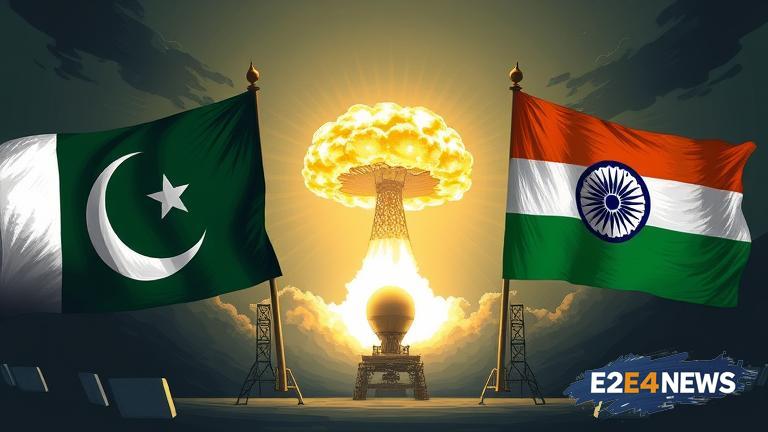Pakistan’s Prime Minister Shehbaz Sharif has denied any nuclear escalation during Operation Sindoor, a military operation conducted by the Pakistani military. The operation was carried out in response to India’s alleged aggression along the Line of Control. Sharif’s statement comes after multiple instances of nuclear blackmail by India, which has raised concerns about the escalating tensions between the two nuclear-armed nations. The Pakistani Prime Minister emphasized that his country’s nuclear capabilities are solely for defense and not for aggression. He also called for dialogue and diplomacy to resolve the outstanding issues between Pakistan and India. The tensions between the two countries have been simmering for decades, with the disputed region of Kashmir being a major point of contention. The Indian government has been accused of human rights abuses in Kashmir, which has led to widespread protests and unrest in the region. Pakistan has consistently called for a peaceful resolution to the Kashmir dispute, while India has maintained that it is an internal matter. The international community has expressed concern over the escalating tensions between the two nations, with the United States and other countries calling for restraint and dialogue. The Pakistani military has also been accused of supporting militant groups in Kashmir, which has further strained relations with India. Despite the tensions, both countries have agreed to maintain a ceasefire along the Line of Control, which has helped to reduce the violence in the region. However, the situation remains volatile, and any miscalculation could lead to a larger conflict. The Pakistani government has also been facing criticism from opposition parties, which have accused it of being too soft on India. The opposition parties have called for a more aggressive approach to deal with India, which has further polarized the political landscape in Pakistan. The international community is watching the situation closely, with many countries calling for a peaceful resolution to the dispute. The United Nations has also offered to mediate between the two countries, but so far, there has been no breakthrough. The situation in Kashmir remains a major concern, with human rights groups accusing both countries of abuses. The Pakistani government has promised to investigate the allegations, but so far, no action has been taken. The Indian government has also been accused of suppressing dissent in Kashmir, with many political leaders and activists being detained or arrested. The situation is complex and multifaceted, with no easy solution in sight. However, it is clear that a peaceful resolution to the dispute is essential to avoid a larger conflict that could have devastating consequences for the region and the world.
